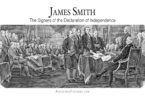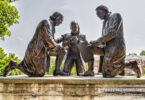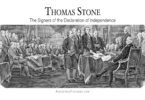William Whipple was born in January of 1731 in Kittery, Massachusetts Bay Colony (which is today known as the town of Kittery, Maine). William’s parents were Captain William Whipple, Sr., and Mary Cutt. The house in which he was born is now a historic landmark called the William Whipple House.
William was educated at the local public school as well as with a tutor. This tutor was Robert Gerrish, who was a cousin from his mother’s family, as well as a Harvard graduate. After leaving school once his primary studies were complete, William expressed the desire to one day be the captain of his own merchant ship. So, he went to sea on one of his father’s merchant ships and achieved his goal of being captain of his own ship when he was twenty-one years old.
William mostly sailed between the American colonies and the West Indies, participating in the lucrative “Triangle Trade,” which was the infamous trading triangle between Great Britain, Africa, and the American colonies, which involved the trade of goods going to and from Great Britain and her colonies. This was a lucrative business, and William acquired a considerable fortune in a relatively short time.
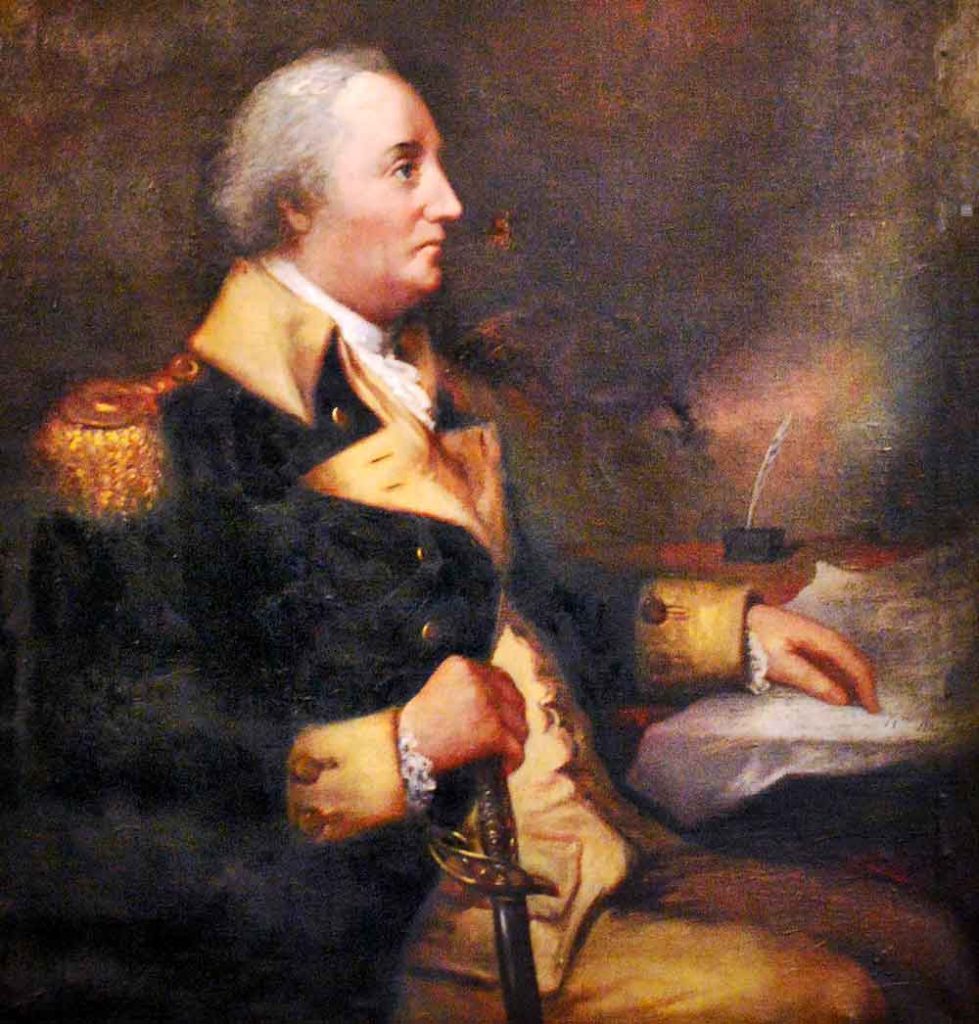
In 1759, at twenty-eight years old, William gave up the seafaring life, as he had become wealthy enough that he no longer needed to participate in it. William came home to New Hampshire and went into a land-based merchant business on Bow Street in the town of Portsmouth, partnering with two of his brothers.
While working with his brothers, William became engaged to be married. This did not go well, as his fiancée decided she could not go through with the marriage for unknown reasons that were purely her own and left William at the altar. After this humiliating romantic disappointment, William later went on to wed his cousin, Catherine Moffat. Both bride and groom had never previously been married, and both were about 35 years old at the time of their wedding.
The couple had one child together, a son named William Whipple, III, who crossed to the other side as a baby. William and Catherine lived in a Georgian colonial home in Portsmouth, New Hampshire, which is still intact and is being used as a private residence today.
William became involved in politics in 1775, when New Hampshire dissolved its royal government and established both a House of Representatives and an executive council. Together, these two new government entities were known as the Provincial Congress. William was elected to it to represent the town of Portsmouth. While serving on the Provincial Congress, William worked on the Committee of Safety. As a well-regarded member of the Provincial Congress, William was elected to be a delegate to represent the colony of New Hampshire at the Continental Congress, which was being conducted in Philadelphia. It was while serving in the Continental Congress that William signed the Declaration of Independence.
William was a second cousin to another signer of the Declaration of Independence, Stephen Hopkins.
A letter exists to the present day that William wrote to his fellow signer, Josiah Bartlett, in January of 1776, speaking of the upcoming Continental Congress. In this letter, William said:
“This year, my Friend, is big with mighty events. Nothing less than the fate of America depends on the virtue of her sons, and if they do not have virtue enough to support the most Glorious Cause ever human beings were engaged in, they don't deserve the blessings of freedom.”
While William owned a slave named Prince Whipple, who acted as his personal servant, William freed him, as he believed that no man could or should engage in a battle for freedom while keeping another man in bondage. Of this, William wrote:
“A recommendation is gone thither for raising some regiments of Blacks. This, I suppose will lay a foundation for the emancipation of those wretches in that country. I hope it will be the means of dispensing the blessings of Freedom to all the human race in America.”
After signing the Declaration of Independence, William was given command of a brigade of four regiments of militia by the New Hampshire Provincial Congress. This was his first commission. This brigade was commended for its meritorious conduct at the Battle of Saratoga, and thanks to this, William, along with Colonel James Wilkinson, was chosen by Major Horatio Gates to be the determiner of the terms of capitulation with two representatives of General John Burgoyne. After this capitulation, William signed the Convention of Saratoga, which was essentially a surrender of General Burgoyne and his troops.
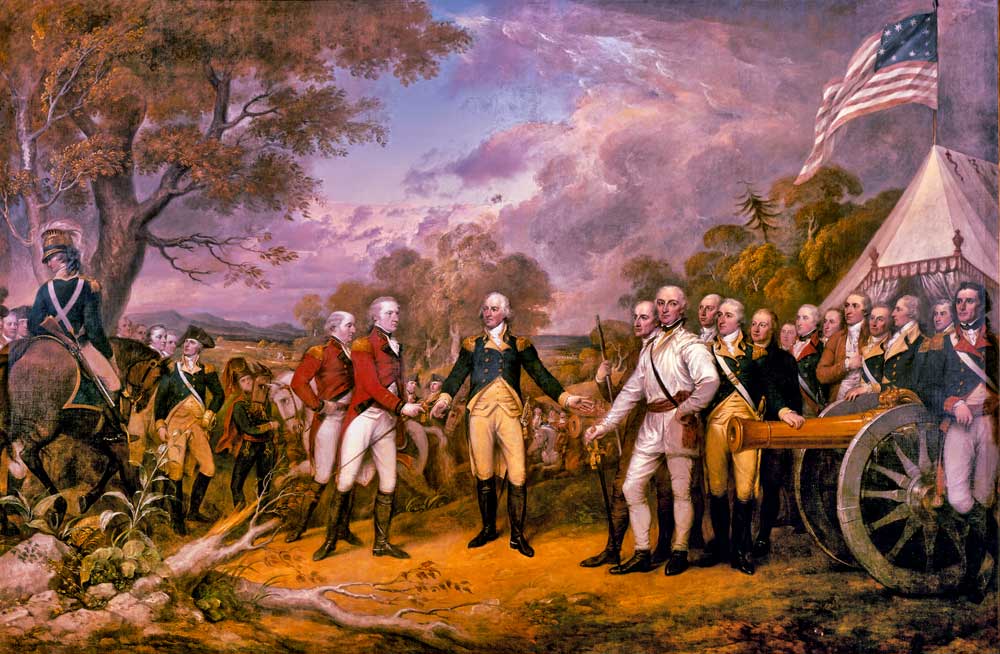
William served commendably in several other important battles in the American Revolution, including the Battle of Rhode Island. During this battle, one of William’s brigade majors required a leg amputation after being hit by a stray shot from three-quarters of a mile away that first went through a horse before hitting the major in the leg. William also gave news of the Saratoga victory to John Paul Jones, who in turn gave it to Benjamin Franklin in Paris. This news proved valuable to Benjamin when he conducted alliance negotiations with the French.
After the American Revolution, William studied for the bar, passed it, and became an associate justice of the Superior Court of New Hampshire. William was suffering from an unspecified heart ailment during much of this time, though he continued to ride the circuit to try cases as his position required. After several years of judicial activity, much of it on the road, William suffered a particularly bad episode of this ailment that caused him to fall from his horse while riding the court circuit. He was taken home, where he was unable to leave his bedroom from then on.
William lived like this for several months, doing as little physical activity as possible, hoping to strengthen his heart and regain his health. He crossed over to the other side while still in this endeavor, in November of 1785, at his home in New Hampshire. William was buried in what is now known as the North Cemetery in Portsmouth, New Hampshire. His original headstone was replaced with a new one in 1976 as a part of the bicentennial celebrations in the United States of America.

